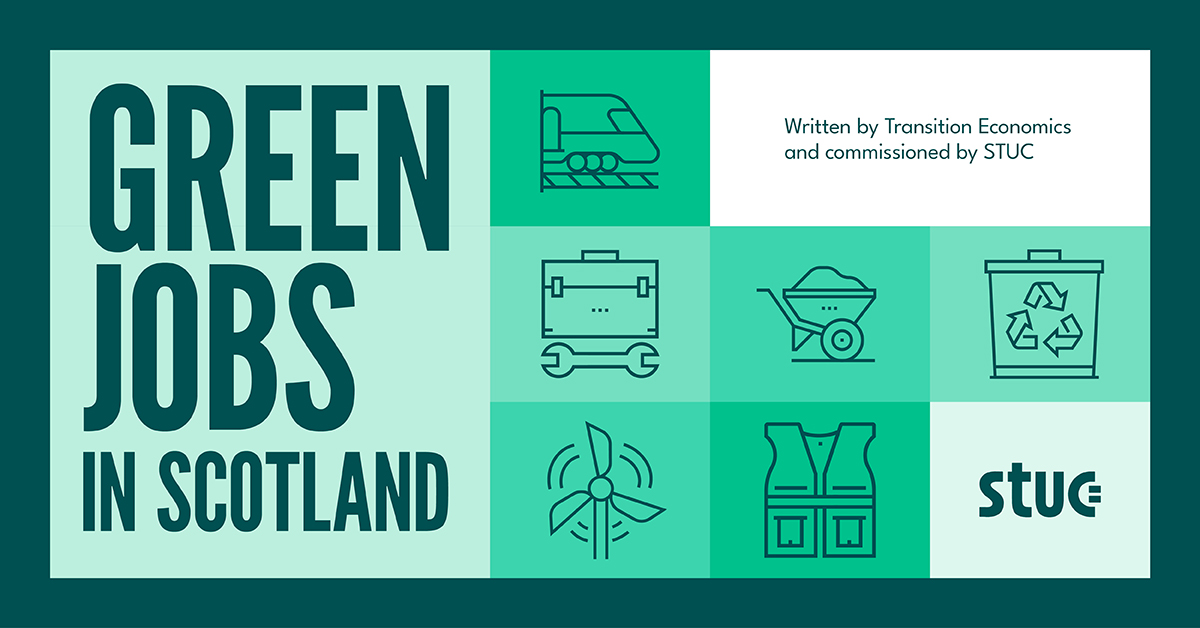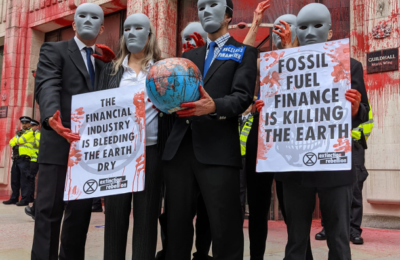A report commissioned by the Scottish TUC and written by Transition Economics estimated up to 367,000 Green jobs could be created in Scotland.
With the right policies, decarbonising Scotland’s economy could create up to 367,000 jobs, according to a major new report by Transition Economics. However, without the right policies, job creation will be less than 131,000.

The report, commissioned by the STUC, looks at how energy, buildings, transport, manufacturing, waste, agriculture and land-use need to be decarbonised, and sets out how Scotland can maximise green job creation, as well as fair work and effective worker voice in these jobs. It calls for an active industrial strategy, far greater levels of public ownership and significant public investment. Among its specific recommendations are a street-by-street programme of energy efficiency upgrades; a national energy company that builds and generates renewables; and much greater investment in local authority bus services.
The report estimates the following future green job creation by sector:
• Energy: 30,000 – 95,000 jobs over 15+ years in zero carbon energy (including renewables, hydrogen and storage) – but potentially only 16,000 without the right policies.
• Buildings: 61,000 – 136,000 jobs over 10+ years in decarbonising buildings and broadband, plus a further 22,000 – 37,000 jobs over 3 years in building new social housing.
• Transport: 26,000 – 60,000 jobs over 10+ years in upgrading and expanding transport (railways, metros, EV charging and batteries, cycle and walking infrastructure, and zero-emissions freight & shipping), with a further 11,000 – 13,000 ongoing jobs in operations.
• Manufacturing & Industry: 5,000 – 9,000 jobs new and ongoing jobs in manufacturing (including steel, CCS and re-manufacturing), alongside protecting existing employment numbers in chemicals and refining.
• Waste: 17,000 – 23,500 jobs new and ongoing jobs in circular economies and waste management.
• Land-Use: 17,000 – 43,000 jobs over 12+ years in nature restoration, reforestation and sustainable farming.

